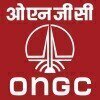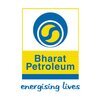Filter interviews by
Indian Oil Corporation Pump Operator Interview Questions and Answers
6 Interview questions
A pump is used to move fluids, while a compressor is used to increase the pressure of gases.
Pump is used for fluids, compressor is used for gases
Pump moves fluids from one place to another, compressor increases the pressure of gases
Pump operates at lower pressures, compressor operates at higher pressures
Examples: Water pump, fuel pump, air compressor
Centrifugal pumps are named so because they use centrifugal force to generate pressure and move fluid.
Centrifugal pumps work by converting rotational kinetic energy into hydrodynamic energy.
The pump's impeller spins rapidly, creating a centrifugal force that pushes the fluid towards the outer edges of the impeller.
This centrifugal force increases the fluid's velocity and pressure, allowing it to be discharged thro...
Pumps are used for water to facilitate its movement from one place to another.
Pumps are used to extract water from wells, rivers, or other sources for various purposes like irrigation, drinking water supply, or firefighting.
They are also used in industries to transfer water for cooling systems, manufacturing processes, or wastewater treatment.
Pumps are essential in construction projects for dewatering excavations ...
There are various types of pumps used for different purposes, such as centrifugal pumps, reciprocating pumps, and diaphragm pumps.
Centrifugal pumps are commonly used in industries for transferring fluids.
Reciprocating pumps are used in applications where high pressure is required, such as in hydraulic systems.
Diaphragm pumps are often used for pumping fluids with high viscosity or containing solids.
Other types of ...
Reciprocating pumps are used in high head applications due to their ability to generate high pressure.
Reciprocating pumps have a piston or plunger that moves back and forth to create pressure.
They are capable of generating high discharge pressures, making them suitable for high head applications.
The reciprocating action allows for better control and regulation of flow rate.
They are commonly used in industries such...
Petrol and diesel have different densities.
Petrol has a lower density than diesel.
The density of petrol is around 0.71 to 0.77 grams per cubic centimeter.
The density of diesel is around 0.82 to 0.85 grams per cubic centimeter.
Density is a measure of mass per unit volume.
Indian Oil Corporation Pump Operator Interview Experiences
1 interview found
I applied via Walk-in and was interviewed before Feb 2023. There was 1 interview round.
(6 Questions)
- Q1. What's types of pump
- Ans.
There are various types of pumps used for different purposes, such as centrifugal pumps, reciprocating pumps, and diaphragm pumps.
Centrifugal pumps are commonly used in industries for transferring fluids.
Reciprocating pumps are used in applications where high pressure is required, such as in hydraulic systems.
Diaphragm pumps are often used for pumping fluids with high viscosity or containing solids.
Other types of pumps...
- Q2. Why known as centrifugal pump
- Ans.
Centrifugal pumps are named so because they use centrifugal force to generate pressure and move fluid.
Centrifugal pumps work by converting rotational kinetic energy into hydrodynamic energy.
The pump's impeller spins rapidly, creating a centrifugal force that pushes the fluid towards the outer edges of the impeller.
This centrifugal force increases the fluid's velocity and pressure, allowing it to be discharged through t...
- Q3. Why reciprocating pump used in high head
- Ans.
Reciprocating pumps are used in high head applications due to their ability to generate high pressure.
Reciprocating pumps have a piston or plunger that moves back and forth to create pressure.
They are capable of generating high discharge pressures, making them suitable for high head applications.
The reciprocating action allows for better control and regulation of flow rate.
They are commonly used in industries such as o...
- Q4. Why used pump for water
- Ans.
Pumps are used for water to facilitate its movement from one place to another.
Pumps are used to extract water from wells, rivers, or other sources for various purposes like irrigation, drinking water supply, or firefighting.
They are also used in industries to transfer water for cooling systems, manufacturing processes, or wastewater treatment.
Pumps are essential in construction projects for dewatering excavations or tr...
- Q5. What difference between pump and compressure
- Ans.
A pump is used to move fluids, while a compressor is used to increase the pressure of gases.
Pump is used for fluids, compressor is used for gases
Pump moves fluids from one place to another, compressor increases the pressure of gases
Pump operates at lower pressures, compressor operates at higher pressures
Examples: Water pump, fuel pump, air compressor
- Q6. What's density petrol and diesel
- Ans.
Petrol and diesel have different densities.
Petrol has a lower density than diesel.
The density of petrol is around 0.71 to 0.77 grams per cubic centimeter.
The density of diesel is around 0.82 to 0.85 grams per cubic centimeter.
Density is a measure of mass per unit volume.
Interview Preparation Tips
Top trending discussions






Interview questions from similar companies

I applied via Recruitment Consultant and was interviewed before Apr 2020. There were 3 interview rounds.
Interview Questionnaire
1 Question
- Q1. Process related
Interview Preparation Tips

(5 Questions)
- Q1. What is poroosity
- Ans.
Porosity is the measure of empty spaces in a material, often used in geology and engineering.
Porosity is the ratio of void spaces to total volume in a material.
It is expressed as a percentage.
Porosity is important in fields like geology for assessing rock formations and in engineering for determining the strength of materials.
Examples of porous materials include sponges, pumice stones, and aerogels.
- Q2. What is permeability
- Ans.
Permeability is the property of a material that allows fluids or gases to pass through it.
Permeability is a measure of how easily a substance can pass through a material.
It is often used in geology to describe how easily fluids can flow through rocks or soil.
Permeability can be affected by factors such as pore size, connectivity, and fluid viscosity.
Materials like sandstone have high permeability, while materials like ...
- Q3. Why you want this job
- Ans.
I am passionate about helping others and believe this job will allow me to make a positive impact in the community.
I have a strong desire to contribute to the well-being of others
I am excited about the opportunity to work in a team-oriented environment
I am eager to learn and grow in my career
- Q4. Oil shale vs shale oil differnece
- Ans.
Oil shale is a rock containing kerogen that can be converted into shale oil through a process called retorting.
Oil shale is a sedimentary rock containing kerogen, a precursor to oil.
Shale oil is the liquid hydrocarbons extracted from oil shale through a process called retorting.
Oil shale deposits are found in various countries like the United States, Estonia, and China.
Shale oil production has increased in recent years...
- Q5. Unconventional reservoir

I applied via Campus Placement
(1 Question)
- Q1. Tell me about yourself?
(1 Question)
- Q1. Ohm's Law, Bernoulli's Eqn, Hobbies, IC Engines
(1 Question)
- Q1. Basic hr questions.

Intern Interview Questions & Answers
Oil And Natural Gas Corporationposted on 29 Aug 2024
I applied via Walk-in and was interviewed in Jul 2024. There was 1 interview round.
(4 Questions)
- Q1. Types of pumps and classification of pumps
- Q2. Whats is meant by least of an instrument
- Q3. Types of Turbines
- Q4. Why intercooler is used
- Ans.
An intercooler cools compressed air in engines, enhancing performance and efficiency by reducing intake temperatures.
Reduces air temperature: Cooler air is denser, allowing for more oxygen in the combustion chamber.
Improves engine efficiency: Lower intake temperatures lead to better combustion and increased power output.
Prevents knock: Cooler air reduces the likelihood of pre-ignition or engine knock, which can damage ...
Interview Preparation Tips

Intern Interview Questions & Answers
Oil And Natural Gas Corporationposted on 25 Aug 2023

Group discussion will be tough
(1 Question)
- Q1. Basic knowledge of gas industry
Interview Preparation Tips

ITI Fitter Interview Questions & Answers
Oil And Natural Gas Corporationposted on 28 Dec 2023
I applied via Company Website and was interviewed in Nov 2023. There were 2 interview rounds.

(2 Questions)
- Q1. Questions that are designed to assess your specific knowledge and skills related to the technical aspects of a job.
- Ans. Experience; I have done Apprenticeship technical in Logging Services in ONGC , Palavasana, Mahesana. (Year-2022-23)
- Q2. 10 th pass,12th , iti Fitter , Apprenticeship ONGC Mehsana
Interview Preparation Tips
- Technical Skills

CNC Operator Interview Questions & Answers
Oil And Natural Gas Corporationposted on 3 Apr 2024
(1 Question)
- Q1. Technical questions in ICL Machine
Interview Preparation Tips

Engineer Interview Questions & Answers
Oil And Natural Gas Corporationposted on 10 Sep 2024
I applied via Company Website and was interviewed before Sep 2023. There were 2 interview rounds.
2 hrs quantitative and Current affairs
(2 Questions)
- Q1. What were doing after completion of your B Tech
- Ans.
After completing my B Tech, I pursued a Master's degree in Engineering to further enhance my skills and knowledge.
Enrolled in a Master's program in Engineering
Focused on specialized courses related to my field of interest
Participated in research projects and internships to gain practical experience
- Q2. What is generative AI
- Ans.
Generative AI is a type of artificial intelligence that is capable of creating new content, such as images, text, or music, based on patterns and examples it has been trained on.
Generative AI uses neural networks to generate new content based on patterns in existing data.
Examples of generative AI include DeepDream, which creates surreal images, and GPT-3, a language model that can generate human-like text.
Generative AI...
Interview Preparation Tips
Skills evaluated in this interview

(2 Questions)
- Q1. How long would you abord
- Q2. What is your expectation for salaray
Interview Preparation Tips
Indian Oil Corporation Interview FAQs
Tell us how to improve this page.
Indian Oil Corporation Interviews By Designations
- Indian Oil Corporation Technician Apprentice Interview Questions
- Indian Oil Corporation Officer Interview Questions
- Indian Oil Corporation Safety Officer Interview Questions
- Indian Oil Corporation Intern Interview Questions
- Indian Oil Corporation Technician Apprentice Trainee Interview Questions
- Indian Oil Corporation Apprentice Trainee Interview Questions
- Indian Oil Corporation Apprenticeship Trainee Interview Questions
- Indian Oil Corporation Production Engineer Interview Questions
- Show more
Interview Questions for Popular Designations
Overall Interview Experience Rating
based on 1 interview experience
Difficulty level
Duration
Interview Questions from Similar Companies
Indian Oil Corporation Pump Operator Reviews and Ratings
based on 1 review
Rating in categories
|
Assistant Manager
198
salaries
| ₹18 L/yr - ₹31.5 L/yr |
|
Manager
144
salaries
| ₹1.8 L/yr - ₹5 L/yr |
|
Apprentice Trainee
144
salaries
| ₹0.9 L/yr - ₹3 L/yr |
|
Project Assistant
125
salaries
| ₹2.4 L/yr - ₹5 L/yr |
|
Computer Operator
123
salaries
| ₹0.7 L/yr - ₹4.3 L/yr |

GAIL

Reliance Industries

Shell

Bharat Petroleum
- Home >
- Interviews >
- Indian Oil Corporation Interview Questions












